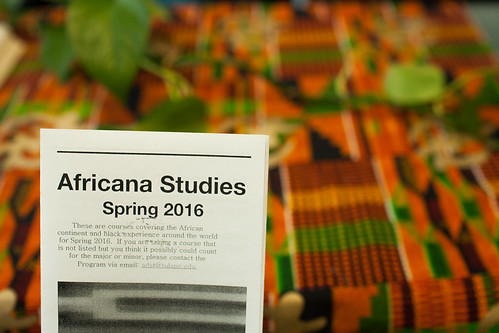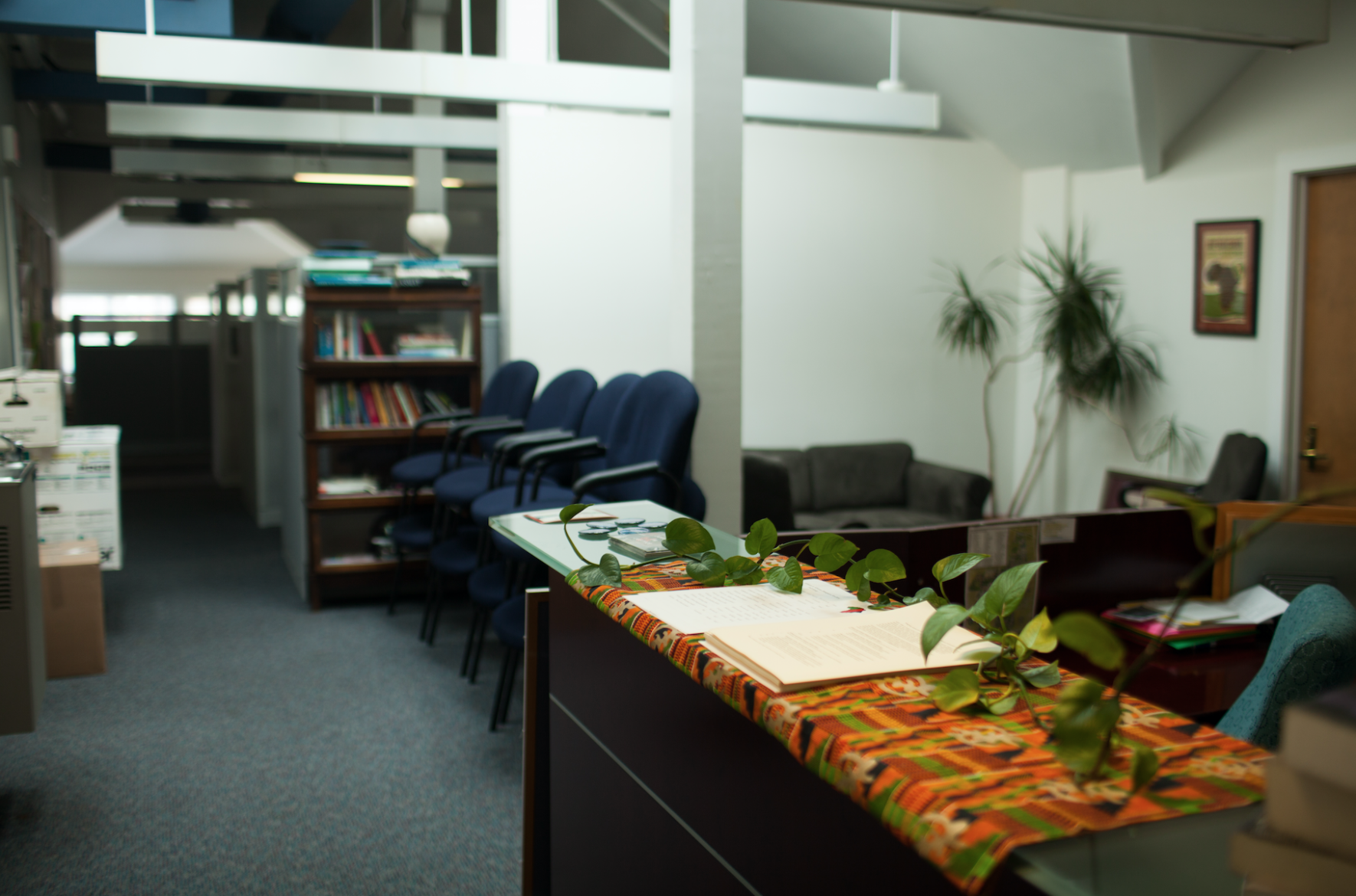African and African Diaspora Studies refocuses
On the third floor of F. Edward Hebert Hall, amid unpacked boxes and move-in clutter, is a newly refocused African and African Diaspora Studies program.
In a new, smaller office that reflects its smaller size compared to other majors, the program recently moved from Norman Mayer building to Hebert, a change being met with mixed reactions by students and faculty. Despite moving to a smaller office, the program is making changes that will increase its visibility on campus. Those changes include the removal of the capstone requirement, a greater emphasis on internationalism and a future name change.
“I liked our other offices better, but this new office can be a good way to say to students: hey this program is here and it is accessible,” said Laura Rosanne Adderley, associate professor of history and head of the African and African Diaspora Studies program.
The office change is due in part to a lack of student enrollment in African and African Diaspora Studies courses. This semester, African and African Diaspora Studies offered 10 courses, none of which filled their maximum seats. One African Politics class currently has seven of its 25 seats filled, an Invention of Africa class has six of its 15 seats filled and an Introduction to African American Literature has six of its 30 seats filled. The program currently has seven declared majors.
Adderley has hopes that the new office can create a welcoming space for students. But some students are not as optimistic and worry that the office change signals a disregard on the part of Tulane toward African and African Diaspora Studies.
“Tulane has been killing this program with overt apathy,” junior Olivia Wreford, African and African Diaspora Studies and English double major, said. “Demanding they move to an office with half as much space is a great example of the lack of respect for the department.”
Other students agree and regard the alleged lack of support as concerning, especially for a university located in such a highly diverse city.
“Tulane boasts a relationship with New Orleans, but does not want to invest in understanding the communities that exist here,” junior Zoe Krulak-Palmer, African and African Diaspora Studies and Public Health double major, said. “Putting the [program] in a weird attic seems like another way Tulane is insinuating that we are not as important as other majors are.”
The program’s new office shares space with Linguistics, International Development and the Altman Program, which influenced African and African Diaspora Studies’ new focus on internationalism.
The program is promoting more study abroad opportunities, not only in Africa, but in all parts of the world affected by the African Diaspora, including parts of Latin America and Europe. Additionally, program faculty hopes that students will consider taking courses in other international studies programs.
“As we recommit ourselves to an international focus, there are a lot of opportunities for students pursuing a major in African and African Diaspora Studies to study abroad in places directly relevant to their interests,” said Professor Chris Dunn, jointly appointed in Spanish and Portuguese and African and African Diaspora Studies.
The program is also panning to change its name. Despite being called African and African Diaspora Studies for over 25 years, Adderley hopes that changing the name of the program to Africana Studies will increase visibility for the program.
“The original faculty wanted a program name that was clear and descriptive, but it was a mouthful,” Adderley said. “People tend to refer to us as our registrar’s acronym, ADST, which is literally meaningless, and makes our program invisible and opaque.”

Avery Fiftal | Photography Editor
Students, too, are hopeful that a name change will help promote the program on campus.
“Changing the title definitely helps since the old title was long and alienating,” Wreford said. “We have a presence on campus and the name change will help people become more aware of it.”
Despite some student concerns, Dean of the School of Liberal Arts Carole Haber said she feels that the School of Liberal Arts has been supportive of African and African Diaspora Studies.
“There is a tremendous amount of support that students may not be aware of,” Haber said. “There is nothing the faculty has asked of us that we have not done.”
Adderley is also hopeful that a partnership with the School of Liberal Arts can generate more awareness of the program.
“We, and the School of Liberal Arts, know that students feel a lot of pressure to know what their next step is in the world,” Adderley said. “We hope students consider this program in order to actually really know something about the globe in which we live.”
Faculty, students and administration are looking forward to the future for African and African Diaspora Studies and the program’s place at Tulane. To publicize the changes, the program is hosting Africana Week this week.
“This is a program that speaks to some of the most pressing social issues and challenges we face in our society with regards to persistent racial inequality, racial injustice and racial violence,” Dunn said. “Here, students can be exposed to those kind of discussions.”
Your donation will support the student journalists of Tulane University. Your contribution will allow us to purchase equipment and cover our annual website hosting costs.



